Rio Olympics: 43 LGBT athletes to compete
This year's Olympics will be the most queer-friendly ever, but LGBT participation stretches back almost a century

“Being an out athlete at the Olympics is an important opportunity to live my truth while competing at the highest level in sport.”
Michelle Heyman represents the culmination of decades of progress on LGBT issues. A member of the Australian Women’s National Soccer Team, she will represent her country at the 2016 Rio Olympics not only as a proud Aussie, but as an openly lesbian women on an international stage in front of millions of viewers. That Heyman and forty-two other athletes feel comfortable enough to be out and proud is a testament to how far the sporting world has come. As Heyman herself told ThinkProgress: “Everyone has the right to be themselves and they shouldn’t have to hide. We need to accept, understand, and celebrate that everyone and every athlete is different.”
The USA alone is sending seven LGBT athletes to Rio — all women — including basketball player Seimone Augustus, rugby star Kelly Griffin, and kayaker Ashley Nee. Host nation Brazil has four out athletes as part of its delegation, while other nations with LGBT athletes include Great Britain, India, Sweden, Germany, Canada, and New Zealand, covering sports from soccer to discus to swimming to equestrian. It all helps to make the 2016 Olympic Games the most inclusive in history — even if LGBT athletes comprise less than 0.4 percent of the total number in Rio.
“The sports world is far more evolved on LGBTQ issues than we give it credit for,” Outsports.com’s Cyd Zeigler told ThinkProgress. “While there may still be issues in some front offices, the athletes and fans have been ready, willing and able to accept and welcome gay teammates and colleagues for many years.”
Of course, while LGBT athletes have competed openly for a number of years, queer participation in the Olympics stretches back almost a century. By The Queer Story Files’ estimates, 255 LGBT people have competed in the Olympics, with the first confirmed athlete being Otto Peltzer of Germany, way back in 1928.
At the Amsterdam Olympics, Peltzer was the world record holder for the 800- and 1,500-meters, and favored to take home the gold. An injury playing handball shattered his dreams, forcing him to wait until 1932 in Los Angeles to try again. Fate again struck a cruel blow, as the German team found themselves with the wrong shoes for the California’s Olympic tracks. As Nazism ensnared Germany, homosexuality became a serious crime, and Peltzer was arrested in 1935 and interrogated by the Gestapo for “homosexual offences with youths” — he was accused of having sex with younger runners. He was released in 1936 only on the condition that he end his sporting career, denying the opportunity to compete in that year’s Berlin Olympics. Rearrested in 1937, he fled to Denmark, before returning to Germany in 1941 after he was told that charges against him had been dropped. That transpired to be a lie, and Peltzer was sent to KZ Mauthausen, a brutal forced labor concentration camp known as Mordhausen — “the Murder Houses.” He survived until it was liberated in 1945, but with his sexuality still criminal in Germany, Peltzer eventually moved to India, where he coached upcoming athletes. He was memorialized in 2000 by the German Athletic Association, with the Otto Peltzer Medal, given to outstanding athletes.
Four years after Peltzer made history as the first known gay male to compete in the Olympics, an American would achieve a similar feat for lesbian women. Mildred “Babe” Didrikson is an American sporting legend, a woman who blurred boundaries and achieved incredible success in a number of different sports. In Los Angeles in 1932, Didrikson won two gold medals for the 80 meter hurdles and javelin, and a silver medal for the high jump. Post-Olympics, she carved out a lucrative career in golf, competing in the Los Angeles Open — a men’s tournament, and the first woman to do so — and becoming the biggest female golfing star of the ’40s and ’50s, winning 48 professional tours (41 in the LPGA) and numerous awards. She was named Woman Athlete of the 20th Century by the Associated Press in 1999. Though married, in her later years she formed an intimate relationship with fellow golfer Betty Dodd, who moved in with Didrikson and her husband.
In the years that followed Peltzer and Didrikson, countless other LGBT athletes would compete — albeit in silence. Caitlyn Jenner, then Bruce, took home the decathlon gold at the 1976 Olympics. Greg Louganis attained four golds and a silver (and a stack of gold medals from other events) during his diving career. He wouldn’t disclose either his sexuality or his HIV status until 1995, after he had retired. “I had every expectation that if I went public with the fact that I’m gay, no one would want to hire me and I’d lose my house,” he said in a press conference at the time.
The first athlete to compete openly at any games was U.S. equestrian star Robert Dover, who attended every Olympics between 1984 and 2004, and took home four bronze medals. Dover came out during the 1988 Seoul Olympics, and currently holds the record for the most number of games attended by an LGBT athlete. “In 1988 I came out publicly in Seoul at the Olympics as an openly gay athlete,” he told Eurodressage in 2013. “I have never looked back from that moment.”
Dover’s openness paved the way for this year’s Olympics to be the most open and inclusive in its history. Despite a lack of openly trans athletes — who were only this year cleared to compete in the Olympics — LGBT representation is stronger than ever. And athletes themselves are more comfortable than ever participating openly. “I have heard not one peep about LGBT athletes fearful about going to Rio,” Cyd Zeigler told The Advocate.
It’s a stark contrast even to just eight years ago, when being gay at the Olympics was still controversial. When Australian diver Matthew Mitcham won gold for the 10 meter dive, he rushed into the crowd to embrace his partner, prompting NBC to cut to a different camera feed.
“[NBC] showed stories about everyone else’s families,” Greg Louganis told USA Today. “But just eight years ago, a major network was uncomfortable with a gay couple.”
Support Metro Weekly’s Journalism
These are challenging times for news organizations. And yet it’s crucial we stay active and provide vital resources and information to both our local readers and the world. So won’t you please take a moment and consider supporting Metro Weekly with a membership? For as little as $5 a month, you can help ensure Metro Weekly magazine and MetroWeekly.com remain free, viable resources as we provide the best, most diverse, culturally-resonant LGBTQ coverage in both the D.C. region and around the world. Memberships come with exclusive perks and discounts, your own personal digital delivery of each week’s magazine (and an archive), access to our Member's Lounge when it launches this fall, and exclusive members-only items like Metro Weekly Membership Mugs and Tote Bags! Check out all our membership levels here and please join us today!





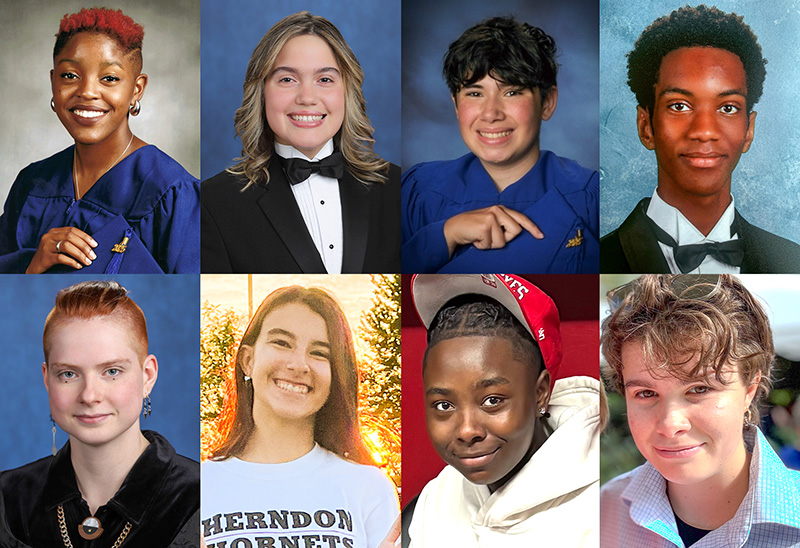
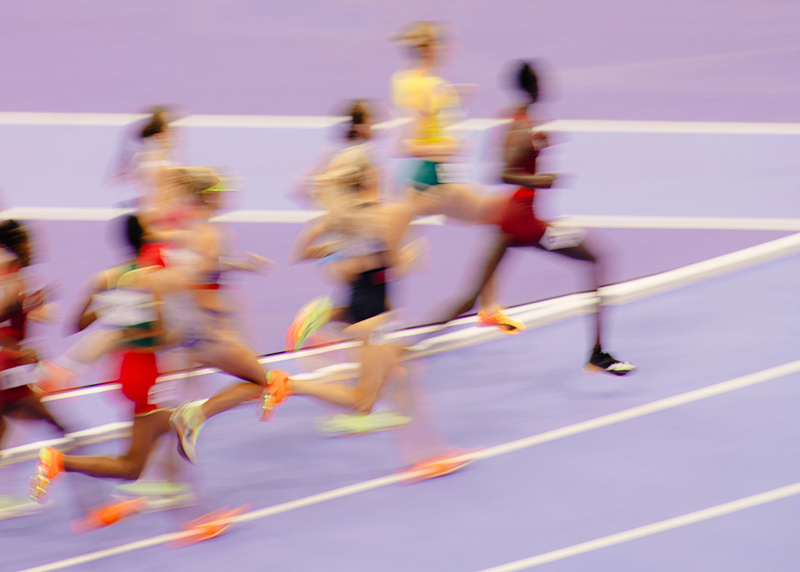
















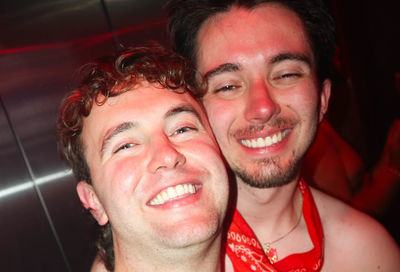
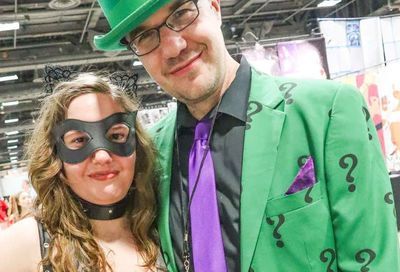
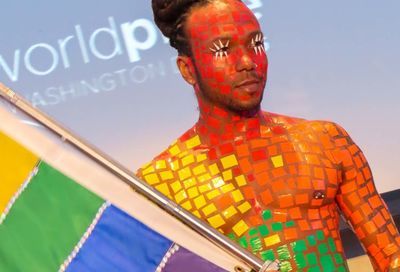
You must be logged in to post a comment.